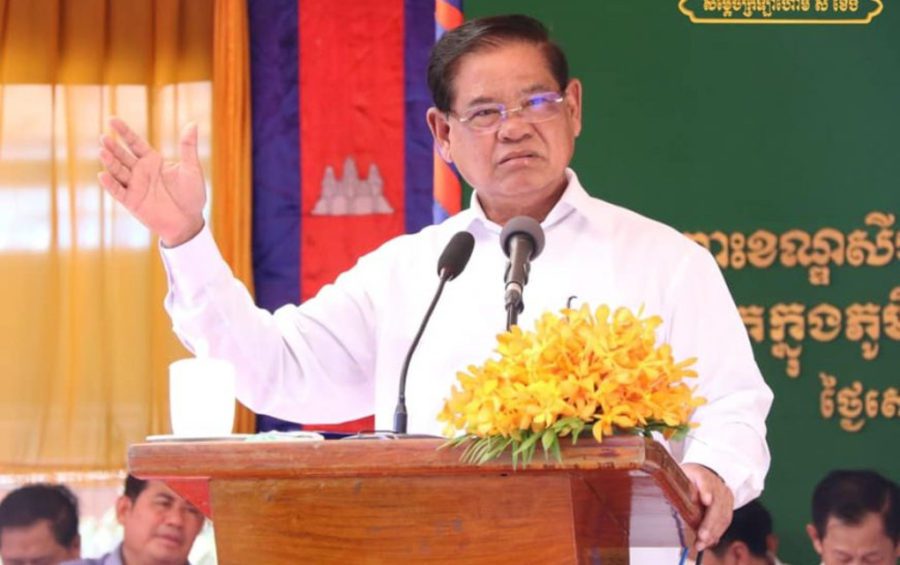Singapore’s Foreign Interference Act, passed last year amid fears of rising repression, will be a model for Cambodia’s own foreign interference law, the Interior Ministry said on Tuesday.
Singapore’s law, which aims to counter “attempts by foreign actors to manipulate our domestic politics,” raised concerns among activists and journalists that they could be punished for vague allegations or designated as “politically significant” and subject to close monitoring and restrictions.
Cambodian Interior Ministry spokesperson Khieu Sopheak said a similar law was needed in Cambodia as a precaution due to past experiences.
“Historically, foreign [powers] both neighboring and afar have disrupted Cambodia’s peace,” Sopheak said, pointing to Cham incursion on the Angkorian Empire a millennium ago. Before the foreign invasion there was interference and traitors, Sopheak said.
“Through the bitter Cambodian experience, and from [the example] we have seen from other countries, samdech kralahom has taken the long view to study and learn,” he said, referring to Interior Minister Sar Kheng. “We should have this too because our history has experienced foreign invasion and interference.”
Singapore was a particular model for the legislation, though other countries also had similar laws, Sopheak said.
“Singapore has this law so that the country is developed and independent, and can run the country with no one giving orders,” he said.
The process was still at an early stage, he added. “Now we have collected the documents.”
Five-hundred pages of law would be translated to Khmer and studied before a law is drafted, he said.
“We will study from others and what is foreign interference: whether providing money to non-governmental organizations to open schools and other things,” he said.
“It will not satisfy some people. Even though they are not satisfied with it, it is for the national interest,” Sopheak said. “If you don’t follow it, you will be punished. With every law, there is always punishment … so people are scared of it.”
Licadho spokesperson Am Sam Ath noted that the government already had laws around antiterrorism and money-laundering.
He said there were also concerns due to the government frequently labeling NGOs as being part of a “color revolution.”













